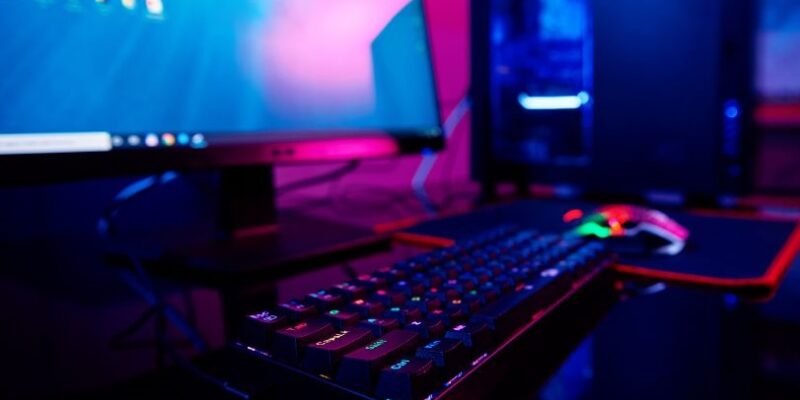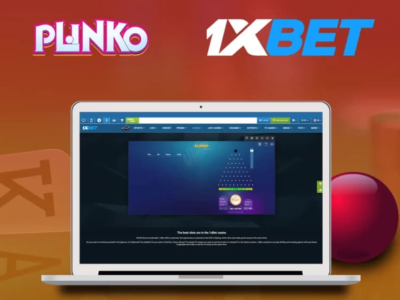You’ve tried PlayStation, you’ve tried Xbox, and now you’re ready to take the step all true gamers make – diving into the world of PC gaming. The transition to PC gaming can seem daunting, but with the right guidance, it’s a journey that promises an unparalleled gaming experience.
PC gaming provides the flexibility to customize your hardware to achieve superior graphics and performance. Unlike consoles, which are limited by their fixed hardware, PCs allow you to upgrade components like the GPU (Graphics Processing Unit) and CPU (Central Processing Unit) to keep up with the latest gaming technology.
From building your setup to shielding it from viruses, this book will walk you through what you need to know to begin PC gaming.
1. Building vs. Buying a Gaming PC
Once you’ve decided to move to PC gaming, the next big decision is whether to build your gaming PC or buy a pre-built one.
Building a Gaming PC
Building a gaming PC from scratch is often the preferred route for experienced gamers. It allows you to select each component based on your preferences, budget, and the specific games you want to play. Here’s what you need:
Case
The case houses all your components. Choose one with good airflow and space for future upgrades.
Motherboard
The motherboard connects all your components. Make sure it matches your selected GPU and CPU.
CPU
Your PC’s brain is its CPU, or central processing unit. Popular choices include Intel’s Core series and AMD’s Ryzen series.
GPU
Gaming performance depends critically on the GPU, sometimes known as the Graphics Processing Unit. NVIDIA and AMD are the leading brands in this category.
RAM
At least 16GB of RAM is recommended for gaming.
Storage
Faster load times of SSDs (Solid State Drives) than of conventional HDDs provide. For best performance and storage capability, think about combining SSD with HDD.
Power Supply
Make sure your power source has adequate wattage to run all of your parts.
Cooling System
Good cooling is essential to keep your components from overheating, especially during long gaming sessions.
Buying a Pre-Built Gaming PC
If you’re not comfortable building a PC from scratch, pre-built gaming PCs are a great alternative. Many manufacturers offer high-quality gaming rigs that are ready to go out of the box. Brands like Alienware, ASUS ROG, and MSI offer a range of options to suit different budgets and performance needs. While you might pay a premium for convenience, a pre-built PC can save you time and effort.
2. Setting Up Your Gaming Environment
Once you have your gaming PC, the next step is setting up your gaming environment. A comfortable and immersive gaming setup can significantly enhance your experience.
Invest in a good gaming monitor with a high refresh rate (at least 144Hz) and low response time. Consider a curved or ultra-wide monitor for a more immersive experience. Mechanical keyboards are somewhat common among gamers for your keyboard because of their tactile feedback and robustness. Pair it with a gaming mouse that has customizable DPI settings and programmable buttons. To enhance the performance of your keyboard, lubricating the switches with Krytox 105 oil can reduce friction and improve smoothness, making each keystroke more satisfying. Additionally, pair your mechanical keyboard with a gaming mouse that has customizable DPI settings and programmable buttons.
A quality gaming headset with surround sound can improve your gaming experience by allowing you to hear subtle in-game details, such as footsteps and environmental sounds. Don’t forget a comfortable gaming chair with good lumbar support is essential for long gaming sessions. Search for a chair with changeable height and reclining mechanisms.
Looking to start streaming gaming content? Be sure to consider what camera and microphone you need and how they will fit into your setup.
Extra tip: Keeping your cables organized not only improves the aesthetics of your setup but also prevents accidents and makes it easier to clean.
3. Installing and Optimising Your Games
Now that your gaming setup is ready, it’s time to install and optimize your games.
Most PC games are available through digital distribution platforms like Steam, Epic Games Store, and Origin. Once you’ve purchased a game, you can download and install it directly from the platform’s client. After installing a game, you’ll want to adjust the graphics settings to achieve the best balance between visual quality and performance. Most modern games offer presets (e.g., Low, Medium, High, Ultra) that can be customized based on your hardware.
Ensure your GPU drivers are up to date, as these updates often include optimizations for the latest games. You can update your drivers through software provided by the GPU manufacturer (e.g., NVIDIA GeForce Experience or AMD Radeon Software). You can use game optimization tools like NVIDIA’s GeForce Experience or Razer Cortex, which automatically adjust in-game settings based on your hardware for optimal performance.
4. Protecting Your Gaming PC from Viruses and Malware
As you start gaming on your PC, it’s crucial to protect it from viruses and malware that can compromise your system’s performance and security.
Make sure to set up the best antivirus for your gaming PC, that is, your first line of defense against malware. These programs offer real-time protection, scanning files and downloads for malicious software. Ensuring you regularly update your computer is also important, it keeps your operating system, antivirus software, and games up to date. Developers frequently release updates to patch security vulnerabilities, so staying current is essential for protecting your system.
Be cautious when downloading files or clicking on links, especially from unknown sources, it’s best to stick to official websites and trusted platforms for game purchases and downloads. Make sure to download a firewall, it helps block unauthorized access to your PC. Ensure your firewall is enabled and configured to provide maximum protection.
Extra tip: Regularly back up your game files and other important data. In case of a virus attack, having a backup ensures you won’t lose your progress or files. For your backups, think about keeping an external hard drive or employing cloud storage.
5. Joining the PC Gaming Community
The community that PC gaming generates is among the most fascinating features of it. Engaging with other gamers can enhance your experience and help you learn more about gaming. Websites like Reddit, PC Gamer, and gaming forums are great places to connect with fellow gamers, share tips, and discuss the latest games.
PC gaming offers access to a vast array of multiplayer games and competitive esports. Whether you’re into casual multiplayer or serious competition, there’s something for everyone.
If you want morе еxciting contеnt visit. Globallyviz.com














Comments